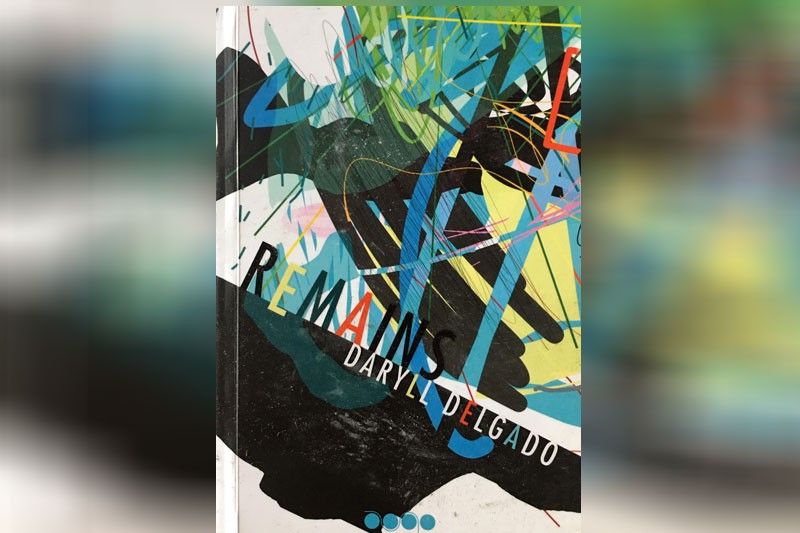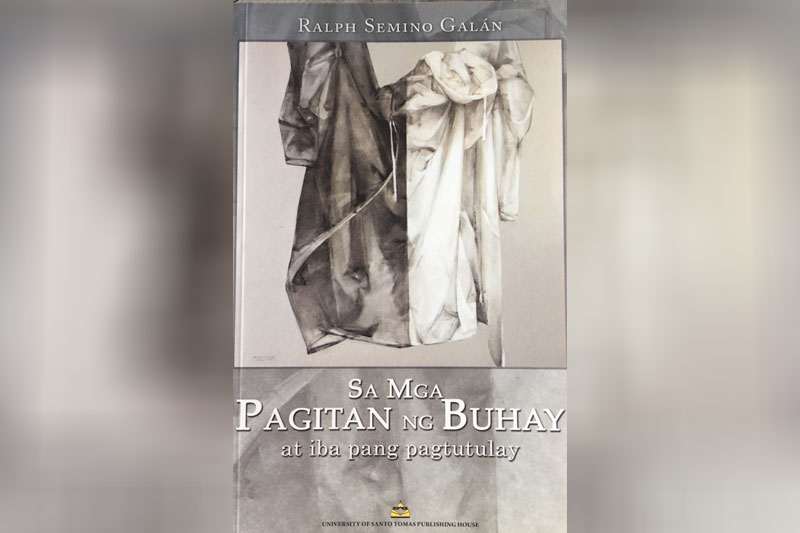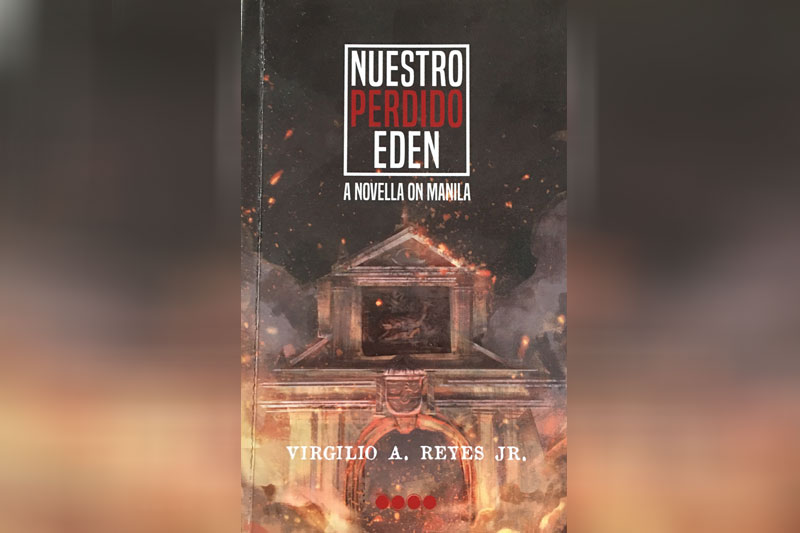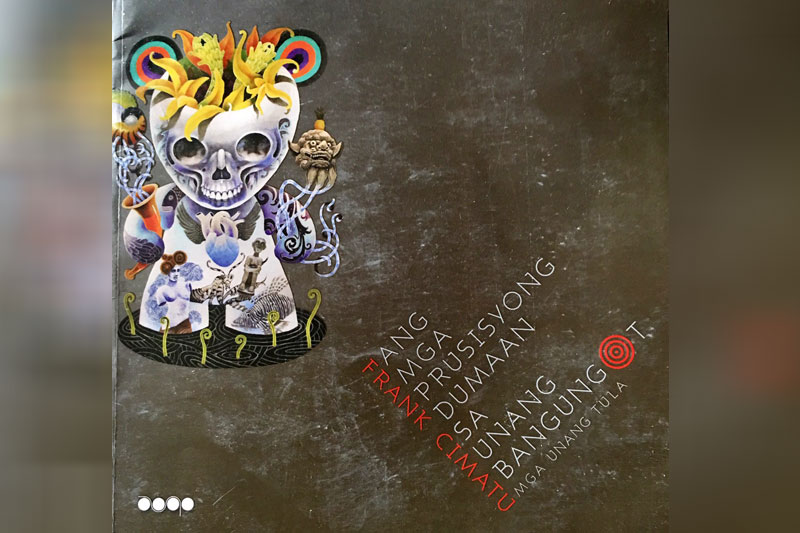From historical and inside gossip to humor


A debut novel, a historical novella, and two poetry books make up our recommended reading list for what’s left of the holiday season. The first three are published by Ateneo de Naga University Press, which must continue to be commended for its active support of first-time authors.
Remains by Daryll Delgado offers another first novel adroitly executed by a Filipina writer who has previously impressed with her short stories. It all meant fine training before taking on the challenge of long-form fiction.

And what a challenge Delgado makes of her difficult attempt to interweave personal memory with documentation of a terrible tragedy: the actual devastation of a city by the most powerful typhoon in history. The documentation can’t be said to be ersatz, much as it’s conducted by a fictional character who also serves as the central intelligence in the story.
Ann is an environmental impact researcher who volunteers to return to her hometown of Tacloban soon after Haiyan wreaked havoc. Delgado herself is from Tacloban, with its tapestry of memories of extended families and clans, and the scents and smells of nostalgia now replaced by the horrific stench of mangled, mythic beasts, human decomposition and an unforgettable landscape of death.

Delgado renders much of the narrative in Waray, weaving the language, inclusive of its jokes, into the idioms of English. There appears to be a deliberate structural choice that makes this narrative seem circumlocutory, with refrains of mystery and anguish repeated in constant cycles.
Ann never manages to find the adopted uncle who was her parents’ lifelong confidante, nor his own daughter who might have perished when the city was flattened by the three giant waves of a storm surge. There is no finality established beyond the notes, interviews and photographs that she has collected in her three days of scoping. Only her olfactory memory remains, and it has been expanded to include foreshadowings of mortality.
Nuestro Perdido Eden: A Novella on Manila by Virgilio S. Reyes could well have been expanded beyond its tight form, if only to escape the structural meandering that is exactly that: a lengthy travelogue with historical commentary and inside gossip rendered by 85-year-old Don Jose Andres Santiago y Zuñiga Soliman, the criollo descendant of Rajah Sulayman, as he tours his favorite nephew and his fiancee through Ermita, Intramuros, Fort Santiago and Binondo.
Don Jose has planned a tertulia for Manila’s 400, one that would feature a discourse on the proposition that Manila is indeed “the gates of hell.” What happens in this climactic event also deserved expansion, so that it doesn’t just serve as an ironic take on an episode in El Filibusterismo.

As a roman a clef that includes actual people like chef Margarita Fores, and mentions Carlos Celdran, history blogger “Toto” Gonzalez (whom the main character actually sounds like), and the expatriate Filipino painter Alfonso Ossorio, it’s still an easy, enjoyable read, however slightly marred by typos and other typographic aberrations, particularly in the use of opening and closing quotation marks.
Ang Mga Prusisyong Dumaan sa Unang Bangungot: Mga Unang Tula by Frank Cimatu is a delightful read, with imaginative narratives taking an antic leap from the usual predilection towards an intimate radius of emotions in poetry.
The second poem alone, “Tungo sa Alamat ni Kumander Eks,” bids fair to memorability by etching a furtive, murderous vigilante who marks his victims’ doors with a white X. In his endnotes, Cimatu says that this character is based on a real person.
The poem has three brief sections, the first (“I. EKS DAY”) with extended lines of a casual rhythm, aided by occasional and effective rhyming that promises jaunty lyricism. The final two stanzas go: “Kayat hindi nakapagtataka/ Na kung sa mga bayan ng Tulunan, Salegseng at Kabankalan/ May mga pinaslang na lang basta/ Na mga alagad ng simbahan.// Siguro minsan ay dumaan ang hanging masama/ At tinabingi ang mga krus sa taas ng kapilya.”
The next section (“II. Ang Pulang Kamisadentro ni Kumander Eks”) is a single page with a concrete presentation simulating a vest with the protective powers of what typically appear as pig Latin, except that some letters that form a grid are rendered in bold, marking them out as eminently readable, with words such as Sagrado, Corazon, Alsa Masa, Calida, TADTAD, and Sic… Transit… Gloria Mundi.
The last section (”Ang Alamat ni Kumander Eksodus”) starts with “At nagsimula ang Diaspora:…” Some lines later: “Nangamba ang pamahalaan — // Wala na ang mga turista!” (in bold)… Curt exposition cites a scheduled election, mayors getting busy erasing the white X’s everywhere, and a fiesta to declare that Kumander Eks is gone.
“Ngunit walang dumalo.// Maliban sa mga sundalo./ Ang dahilan ng mga naiwan—/ Sinong maniniwala na patay na si Kumander Eks/ At di lamang nagtatago sa mga kampo?/ Sinong maniniwala na wala na ang mga puting eks/ At di lamang nag-ipon-ipon sa mga kamposanto?”
Humor, verve and gravitas characterize the rest of the poems in this notable collection.
Sa Mga Pagitan ng Buhay at iba pang pagtutulay by Ralph Semino Galan, from University of Santo Tomas Publishing House, features translations to Filipino of poems by Louise Gluck, Mary Oliver, Margaret Atwood, Naomi Shihab Nye, Carolyn Forché, St. John of the Cross, Pablo Neruda, Hadewijch of Brabant and Carol Ann Duffy. These are joined by translations of our own poets writing in English: Jaime An Lim, Edith L. Tiempo, Eric Gamalinda, Ophelia A. Dimalanta, Merlie M. Alunan, Virginia R. Moreno, Gémino H. Abad, Luisa A. Igloria, R. Zamora Linmark, and Galan’s own poem, “Tartanilla.”
Obversely, translated from Filipino to English are poems by Ruth Elynia Mabanglo, the author’s own “Sumpa” (into “Curse”), Romulo Baquiran, Jr., Michael M. Coroza, Benilda S. Santos, German Villanueva Gervacio, Jerry B. Gracio, Ligaya Tiamson-Rubin, Joselito D. Delos Reyes, John Iremil Teodoro and Joi Barrios.
Here’s an excerpt of the translation of Neruda’s classic “Tonight I can write (The Saddest Lines)” as “Maisusulat ko ngayong gabi…”: “Hindi ko na siya mahal, sigurado ako, pero hindi kaya mahal ko pa siya?/ Kay ikli ng pag-ibig, pero bakit sadyang kay tagal ng paglimot.// Dahil sa mga gabing tulad nito na dati siyang yakap-yakap ng aking mga braso/ umaalma ang aking kaluluwa sapagkat siya ay wala na.// Pero ito na ng pinakahuling sakit na idudulot nya sa akin,/ at ito na rin ang pinakahuling mga berso na isusulat ko para sa kanya.”
Galan is assistant director of the UST Center for Creative Writing and Literary Studies, and has authored several books, including the 2014 poetry collection From the Major Arcana.



















